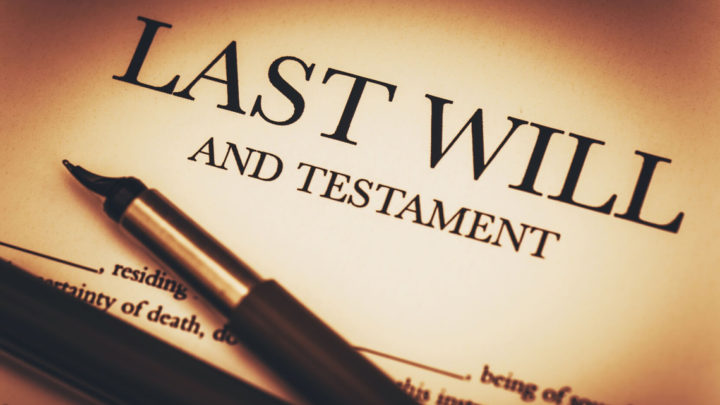Work-Related Accidents Compensation
Work-Related Accidents: Your Rights to Fair Compensation and Legal Protection
Your workplace feels like a second home. You know every hallway, every piece of equipment, and every safety procedure by heart. This familiarity creates comfort, but it can also lead to complacency that increases accident risks. When you spend eight hours a day in the same environment, it’s easy to let your guard down or overlook potential hazards.
Unfortunately, workplace familiarity doesn’t prevent accidents—it sometimes contributes to them. Workers become comfortable with dangerous equipment, take shortcuts on safety procedures, or simply stop noticing hazards they see every day. Whether your accident resulted from familiar circumstances or completely unexpected ones, you have legal rights that deserve protection.
Why Work-Related Accidents Happen
Workplace accidents occur across every industry and job type. Construction workers face obvious dangers from heavy equipment and heights, but office workers suffer repetitive stress injuries, slip-and-fall accidents, and ergonomic problems. Healthcare workers deal with patient violence, needle stick injuries, and back problems from lifting patients. Retail employees encounter customer violence, lifting injuries, and slip-and-fall accidents.
Even the safest-seeming jobs carry risks. Delivery drivers frequently face vehicle accidents and injuries from lifting. Teachers experience student violence and stress-related conditions. Accountants develop carpal tunnel syndrome and vision problems from computer work. The reality is that any job can result in injury, regardless of industry or perceived safety levels.
Time pressure often contributes to workplace accidents. Deadline pressures encourage workers to skip safety steps, rush through procedures, or work when fatigued. Understaffing forces employees to handle jobs beyond their training or physical capabilities. Cost-cutting measures may result in poor equipment maintenance or inadequate safety training.
Some accidents happen because of employer negligence—failing to maintain safe equipment, provide proper training, or address known hazards. Others occur due to coworker carelessness, defective products, or simply bad luck. Regardless of the cause, your right to compensation remains the same.
Your Fundamental Rights After Workplace Injuries
When work-related accidents occur, you have specific legal rights that nobody can take away. First and foremost, you have the right to immediate medical treatment. Don’t let anyone tell you to “tough it out” or delay seeking medical care. Prompt treatment protects your health and creates medical records documenting your injuries.
You have the right to file a workers’ compensation claim without fear of retaliation. Your employer cannot fire, demote, or punish you for reporting workplace injuries or seeking benefits. These anti-retaliation protections exist because lawmakers understand that workers might otherwise suffer in silence rather than risk their jobs.
You also have the right to choose your own attorney. While your employer’s insurance company will have lawyers protecting their interests, you deserve legal representation protecting yours. Insurance adjusters work for insurance companies, not injured workers, so their advice may not serve your best interests.
Most importantly, you have the right to fair compensation that covers all injury-related expenses and losses. This isn’t charity or a favor—it’s legal entitlement you’ve earned through your work contributions and the premiums your employer pays for workers’ compensation coverage.
Understanding Workers’ Compensation Benefits
Workers’ compensation provides several types of benefits designed to support injured workers during recovery. Medical benefits cover all necessary treatment related to your workplace injury, from emergency room visits through complete recovery. This includes doctor visits, surgery, physical therapy, prescription medications, and any ongoing care needed.
Wage replacement benefits help maintain financial stability when injuries prevent work. Temporary total disability benefits provide income support during complete work inability. Temporary partial disability benefits supplement reduced earnings when you return to work at lower capacity. These benefits typically equal about two-thirds of your regular wages.
Permanent disability benefits compensate for lasting impairments affecting your work ability. Whether you have permanent restrictions, reduced capacity, or complete work disability, the compensation system provides ongoing support. Vocational rehabilitation helps retrain workers for new careers when previous jobs become impossible.
Death benefits support surviving family members when workplace accidents prove fatal. These benefits help replace lost income and cover burial expenses during difficult times.
Why Legal Representation Matters
Negotiating fair compensation without legal help puts you at a significant disadvantage. Insurance companies employ experienced adjusters and attorneys whose job is minimizing claim costs. They know the system, understand legal procedures, and have resources you lack as an individual claimant.
During your recovery, you should focus on healing rather than fighting insurance companies over benefits. Physical pain, medical appointments, and financial stress make it difficult to effectively advocate for yourself. Having an experienced attorney handle legal matters allows you to concentrate on getting better.
Legal representation often results in higher settlements and better medical care compared to unrepresented claims. Attorneys understand benefit calculations, know when settlements are inadequate, and can identify additional compensation sources you might miss. They also protect you from insurance company tactics designed to reduce or deny legitimate claims.
Most workers’ compensation attorneys work on contingency fee basis, meaning you pay legal fees only when your case succeeds. This arrangement ensures access to quality legal representation regardless of your current financial situation.
Specialized Federal Claims
While most workplace injuries fall under state workers’ compensation systems, certain industries have specialized federal programs with different rules and potentially better benefits. Railroad workers injured on the job pursue claims under the Federal Employers’ Liability Act, which allows full damage recovery for employer negligence.
Maritime workers—including longshoremen, ship crew members, and offshore workers—have rights under the Jones Act and Longshore and Harbor Workers’ Compensation Act. These federal laws often provide more comprehensive benefits than state workers’ compensation programs.
Workers exposed to asbestos have special legal rights due to the long latency period of asbestos-related diseases. Mesothelioma, lung cancer, and asbestosis may not appear until decades after exposure, creating unique legal challenges requiring specialized expertise.
Taking Action After Work-Related Accidents
If you’ve suffered a workplace injury, start by reporting the accident to your supervisor and seeking necessary medical treatment. Document everything related to your injury, including photographs of accident scenes, witness contact information, and all medical records.
Don’t give recorded statements to insurance adjusters without legal advice. These statements can be used to minimize your claim later. Be polite but firm about wanting legal consultation before providing detailed accident descriptions.
Contact an experienced workers’ compensation attorney as soon as possible. Most offer free consultations where they’ll evaluate your case and explain your options. This consultation helps you understand your rights without any financial commitment.
Work-related accidents disrupt your life, but you don’t have to face the legal consequences alone. Professional legal representation ensures you receive fair treatment and maximum compensation while you focus on recovery and rebuilding your life after workplace injuries.






















